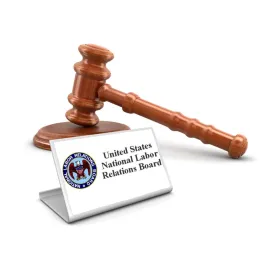On August 9, 2019, we explained that the National Labor Relations Board (NLRB) would be publishing a notice of proposed rulemaking (NPRM) regarding certain proposed amendments to the National Labor Relations Board’s (NLRB) rules on “blocking charges,” a bar on voluntary recognitions, and Section 9(a) recognition in the construction industry. On March 31, 2020, the Board announced that it has finalized the proposed amendments, which it believes “better protect employees’ statutory right of free choice on questions concerning representation.” The final rules will be published in the Federal Register on April 1, 2020, and should take effect after May 31, 2020.
Blocking Charges
Under the Board’s final rule on “blocking charges,” elections can no longer be “blocked” by pending unfair labor practice (ULP) charges. Instead, elections will go forward and votes will either be counted or impounded, depending on the nature of the charge. This is a particularly important change in the context of decertification elections, as unions will no longer be able to block decertification elections by filing ULP charges. Even though elections may go forward, the NLRB clarified that it will not certify the election results until relevant ULP charges have been resolved.
Voluntary Recognition Bar
The Board’s final rules also make significant changes to its voluntary recognition bar standard. Unions that are voluntarily recognized are no longer immune from challenges regarding their majority support for a “reasonable period of time.” Instead, when an employer agrees to voluntarily recognize a union, it must notify the affected employees of the voluntary recognition and, in turn, the employees have 45 days to file a petition with the NLRB challenging the employer’s recognition of the union. The final rule only applies to voluntary recognition agreements that are granted on or after the effective date of the rule.
Section 9(a) Agreements
The final aspect of the Board’s rules clarifies that “positive evidence of majority employee support” is required for converting a Section 8(f) agreement into a Section 9(a) agreement in the construction industry. Accordingly, a Section 8(f) relationship cannot become a Section 9(a) relationship based solely on language in the parties’ collective bargaining agreements. Instead, the majority of the affected employees must affirmatively indicate that they do, in fact, want the union to act as their legal representative for purposes of collective bargaining.



 />i
/>i

